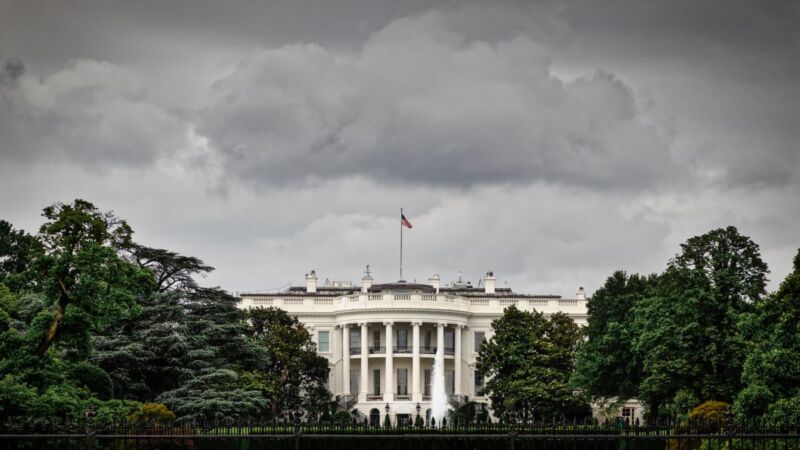The Tax Cuts and Jobs Act's expiring provisions and the Biden administration's Green Book proposals — what’s ahead for tax policy with the impending presidential election?
As the political tides ebb and flow with the coming election year, tax professionals and their clients stand at the precipice of significant changes. In a recent episode of the Thomson Reuters Institute’s Insights podcast, I engaged in a compelling conversation with Shaun Hunley, an Executive Editor at Thomson Reuters. Our discussion centered around the anticipated evolutions in tax legislation and the strategic moves that practitioners must consider in the wake of potential policy shifts following the presidential election in November.
Impact of the Tax Cuts and Jobs Act (TCJA)
The Tax Cuts and Jobs Act, enacted in 2017, has been comprehensive and offered sweetening changes of recent tax law. The TCJA bought into being numerous deductions that many tax specialists have said altered the financial landscape for businesses and individuals alike, and even impacted the overall economy. However, as Hunley points out, not all of TCJA was permanent and there are some provisions that are set to expire.
In fact, certain very popular provisions, including the qualified business income deduction, are on the list that is slated to expire. The qualified business income deduction was a benefit for many small business owners and if it is allowed to expire, it could reshape the financial planning landscape for many businesses. The sunset of this provision presents both challenges and opportunities for tax professionals who look to advise their clients on the best course of action.
Potential changes with the election
With an election happening in less than seven months, the possibility of a new administration in the White House looms large, bringing with it the prospect of a tax policy overhaul. In the podcast, we delved into the implications of such a change, particularly in relation to environmental, social & governance (ESG) considerations. Energy tax credits, which are integral to ESG strategies, could see a significant shift in importance, depending on the election results and subsequent policy direction.

If the White House remains as is — that is, President Joseph Biden wins re-election — then these credits, which are intertwined with the broader ESG movement, could see a reorientation to support sustainable and socially responsible initiatives more aggressively. If the White House flips — that is, former President Donald Trump wins — the opposite could be true, especially if the U.S. House of Representatives stays Republican-majority and the U.S. Senate flips. In that case, these energy tax credits would likely be deprioritized, if not outright repealed.
It is worth noting that the growing emphasis around the world on sustainability and responsible corporate governance suggests that there might be increased support for tax incentives that promote environmental stewardship. This could be an area in which lawmakers from both political parties find common ground, given the public’s growing concern over climate change and the desire to incentivize green energy initiatives.
The Green Book and beyond
The prospects of the Green Book proposals, as outlined annually by the Biden administration, present a complex and ambitious vision for the future of the US tax system. The Green Book is essentially an annual policy document that outlines the administration’s tax priorities, offering a blueprint for potential legislative action.
Hunley’s perspective on the Green Book proposals is cautiously optimistic. He said that he recognizes the inherent challenges in advancing a comprehensive tax reform agenda, particularly those that involve raising revenue or overhauling established tax regimes. For instance, Green Book proposals to close loopholes like carried interest have historically faced stiff resistance from influential interest groups and sectors that benefit from such provisions. Despite this, there’s a sense that some measures, such as expanding individual tax credits, may find common ground across the aisle.
Such action as expanding individual tax credits, especially those aimed at low- and middle-income families, can be politically palatable as they directly support taxpayers and can stimulate economic growth. Credits like the Child Tax Credit and the Earned Income Tax Credit have previously seen bipartisan support, and their expansion aligns with broader social objectives, such as reducing child poverty and incentivizing work.
By contrast, other provisions in the Green Book that seek to raise revenue, such as increasing the top marginal tax rate or adjusting the corporate tax rate, are likely to encounter more resistance. The political climate, public sentiment, and the balance of power in Congress — especially if it changes — all will play critical roles in determining the feasibility of these proposals.
Proactive measures for tax practitioners
In the podcast, Hunley highlights the importance of tax practitioners staying informed and ready to adapt, and he emphasizes the necessity for professionals to educate their clients about the TCJA’s impending sunset provisions. Practitioners should also prepare themselves and their clients for any alterations in deductions and tax credits that are likely to follow.
Staying ahead of the curve is not just good practice, Hunley advises, it is imperative for ensuring that clients are positioned to navigate the tax terrain effectively.
From the nuances of the expiring TCJA provisions to the potential enactment of the Green Book and the election’s influence on tax policies, tax professionals and their clients need to ready themselves for a possibly changing tax policy landscape that may be filled with both complexity and opportunity.
To learn more about the impact of the election on future tax policy, listen to this episode of the Thomson Reuters Institute’s Insights podcast (on Spotify) featuring a conversation with Shaun Hunley, an Executive Editor at Thomson Reuters.







